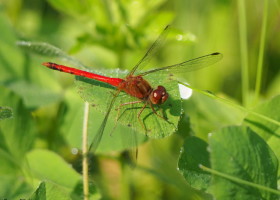
September iNaturalist Vermont Photo-observation of the Month
Congratulations to Susan Elliott for winning the contest with her image of an Autumn Meadowhawk.

eButterfly Visits the White House
This week eButterfly co-director and VCE research associate Katy Prudic is at the White House in Washington, D.C. where she was invited to a small White House conference called Open Science and Innovation: Of the People, By the People, For the People.
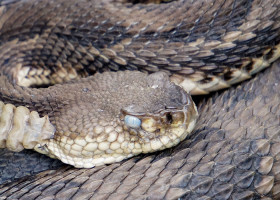
Outdoor Radio: In Search of the Endangered Timber Rattlesnake
This month on Outdoor Radio biologists Kent McFarland and Sara Zahendra head to western Vermont in search of the endangered Eastern Timber Rattlesnake.

Bicknell’s and Blues Highlight VCE Wrap-up Mansfield Visit
VCE’s 2015 wrap-up visit to our long-term Mt. Mansfield study site featured a strong showing by Bicknell’s Thrushes and Black-throated Blue Warblers.
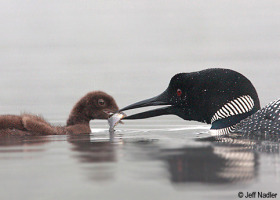
Common Loons and Peregrine Falcons Post Record Breeding Season in Vermont
Ten years after they were removed from Vermont’s endangered species list, two of Vermont’s most cherished bird species continued to expand their populations in 2015. Loons and peregrine falcons both nested in record numbers this summer.
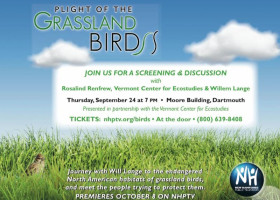
Plight of the Grassland Birds
From the fields of New England and Canada to the vast plains of Montana to the deserts of Mexico, grassland birds are losing their habitats at an alarming rate. VCE is co-hosting a special pre-screening of this documentary on Thursday, September 24th at 7 pm in the Moore Psychology Building at Dartmouth College, Room B023.
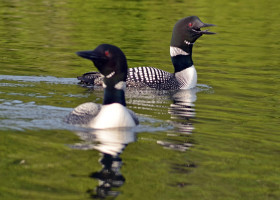
Unsolved (Murder?) Mysteries on the Canadian Border: The case of two loon disappearances
Summer is often the time people head to the beach or hammock to read stories that take them away from the hustle and bustle of daily life. And this summer, even loons were part of the mystery stories.
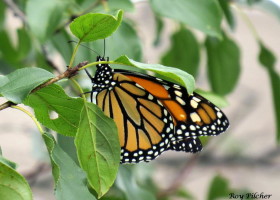
August iNaturalist Vermont Photo-observation of the Month
Congratulations to Roy Pilcher for winning the August 2015 iNaturalist Vermont photo-observation of the month contest.
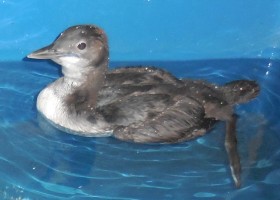
A Wayward Loon’s Rescue: Update No. 1
The rescued Common Loon chick — nick-named “Little Guy” — is making progress at a rehab center in Maine.
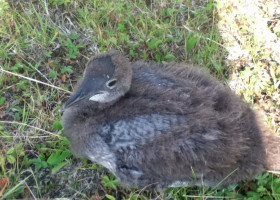
From Roadside to Rescue: A Tale of Determination and a Lost Loon
A chance encounter on a Vermont roadside — and the uplifting story of an errant Common Loon chick.
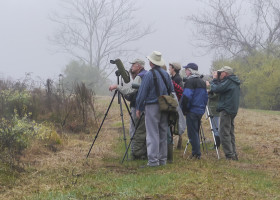
Vermont eBird Update
A lot of exciting developments have happened recently with Vermont eBird and we wanted to share those with you, as well as express our gratitude and appreciation for all that you Vermont eBirders have helped bring to life.
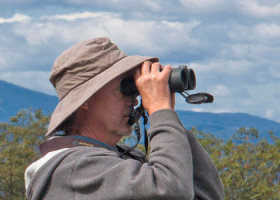
Historic Spring Bird Sightings Digitized at Record Pace
Just over 3 months ago we announced an exciting new web site that allowed us to connect with volunteers virtually to help us enter thousands of historic bird records that only existed on paper. Volunteers have digitized thousands of pages of spring bird records. We’re 90% done. The final push is on!

VCE Embraces Open Science
A mostly quiet revolution is taking place in science. Only fragments of the debate have surfaced in the popular media, and even many scientists appear largely unaware of the impending sea change.
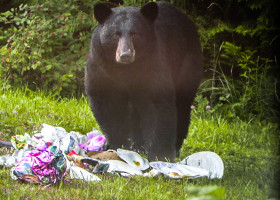
Composting and Bears: Adjusting to Vermont’s Universal Recycling Law
Bears may be attracted to human food sources, so a few steps must be taken to reduce problems between bears and people.
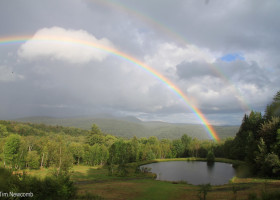
Rainbows and Slug Sex
Double rainbows and slug copulation constitute our light, summertime blog viewing this week. We’re not claiming the two are related (but we’re not ruling it out, either).
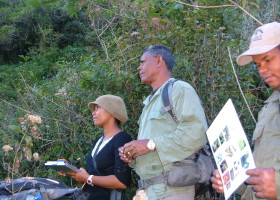
An Historic Collaboration for Birds on Hispaniola
An historic collaboration between Haiti and the Dominican Republic promises to build a better future for bird conservation on Hispaniola.
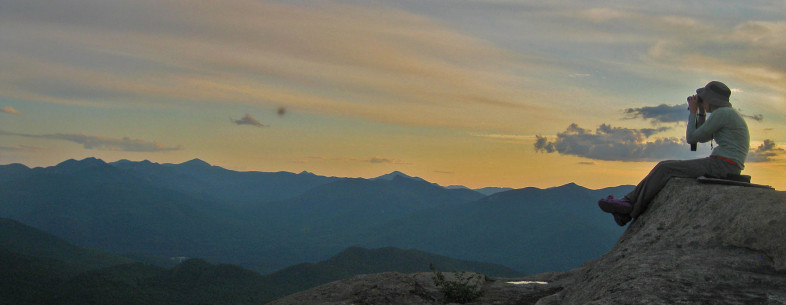
Mountain Birds and Jail Birds: Another Season of Mountain Birdwatch
Trees fall over trails. Bridges wash out. Gullies form and block routes. During Mountain Birdwatch, these are trivialities … compared to a couple of escaped convicts.

Positively Vermont: Vermont Endangered Species
Host Dennis McMahon talks to Steve Parren, Wildlife Diversity Program Manager for VT Fish and Wildlife Department, who has been working on endangered and threatened species projects for over 30 years.
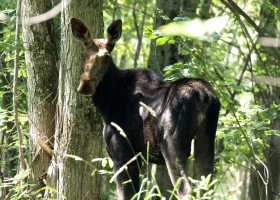
July iNaturalist Vermont Photo-observation of the Month
Congratulations to Julie Filiberti for winning the July 2015 iNaturalist Vermont photo-observation of the month contest.
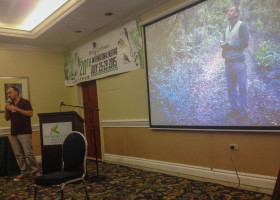
Streamertails and Jamaica – VCE Attends BirdsCaribbean Meeting
VCE played a prominent role in the recent BirdsCaribbean meeting on Jamaica. The five-day conference also afforded a chance to see 20 of Jamaica’s 30 endemic birds.
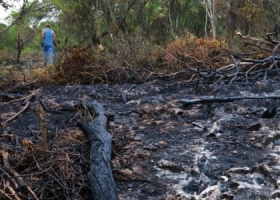
Illegal Deforestation Continues in the Dominican Republic
Sierra de Bahoruco National Park is a vital haven for some of the rarest endemic birds in the Caribbean Basin. But its cloud-forest habitat is being illegally logged and cleared for crops. And conservationists say the government of the Dominican Republic is doing little to stop it.
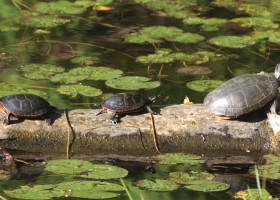
Help Find Missing Turtles
Painted Turtles are one of our most common turtle species. Yet, there are 64 towns without a verified Painted Turtle observation.
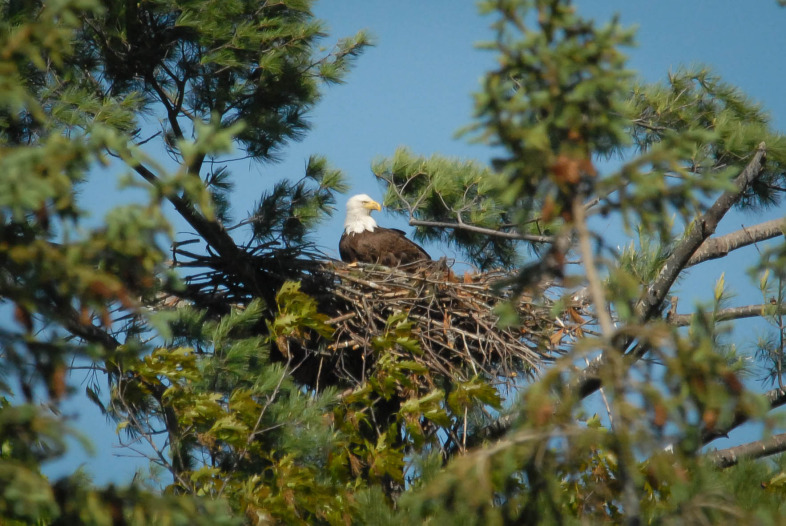
State to Hold Meeting on Proposed Endangered Species Law Updates
The Agency of Natural Resources will hold a meeting to discuss proposed changes to Vermont’s threatened and endangered species law. The meeting will take place August 5, 2015 at 6:30 p.m. at the Pavilion Auditorium, 109 State Street, Montpelier, Vt.
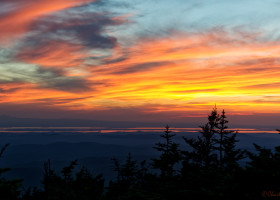
Summer Banding on Mansfield Ends with a Flourish
VCE’s July 20-21 Mt. Mansfield banding session capped another productive field season, our 24th studying the ridgeline’s breeding bird community….
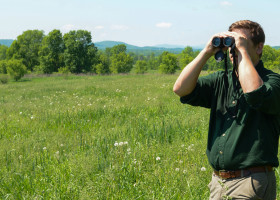
VT Fish & Wildlife Dept Celebrates Opening of New Conserved Lands
More land in Western Addison County will soon be available to the public, and protected for wildlife. The public is invited to attend a celebration of the Lemon Fair Wildlife Management Area, and the 330 acres being added to it, on Tuesday, July 28, from 10:00 a.m. to 12:30 p.m.
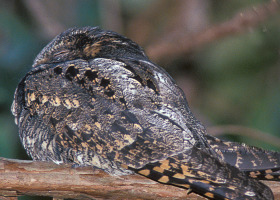
Outdoor Radio: Whip-poor-wills in the Moonlight
Biologists Kent McFarland and Sarah Zahendra head out to West Haven, Vermont at dusk to brave a cloud of mosquitos in search of the song of the threatened whip-poor-will. Listen to the story…
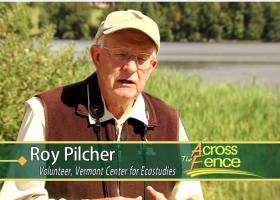
VT Atlas of Life: Documenting Biodiversity on ‘Across the Fence’
Did you miss us on Across the Fence today? Check it out here and learn more about the Vermont Atlas of Life.

Record Rains on Mansfield Fail to Deter Birds or Humans
June’s record 16-inch rainfall on Mt. Mansfield didn’t deter VCE biologists or our hardy visiting friends. The past two weeks brought enthusiasts from Puerto Rico, England, Ireland and New England to experience firsthand a Bicknell’s Thrush up close and personal.
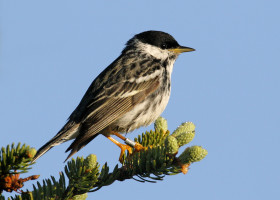
Champion Blackpoll Globe-trotter Returns to Mansfield
No one with even a passing interest in birds can help being astounded by the spectacular migratory feat of Blackpoll…
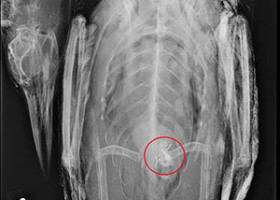
First Documented Lead-Poisoned Loon Collected on Lake Winnipesaukee
The first documented lead-poisoned loon collected from New Hampshire waters this year was discovered July 1, 2015, on Lake Winnipesaukee.
